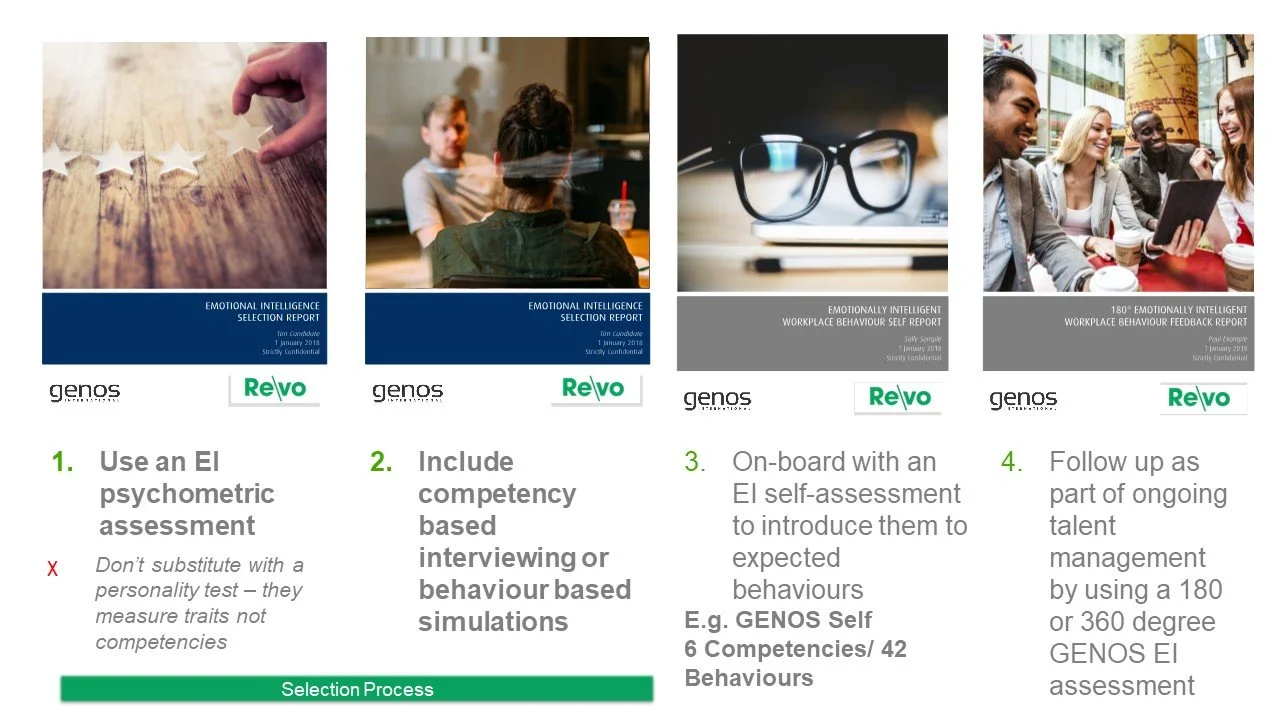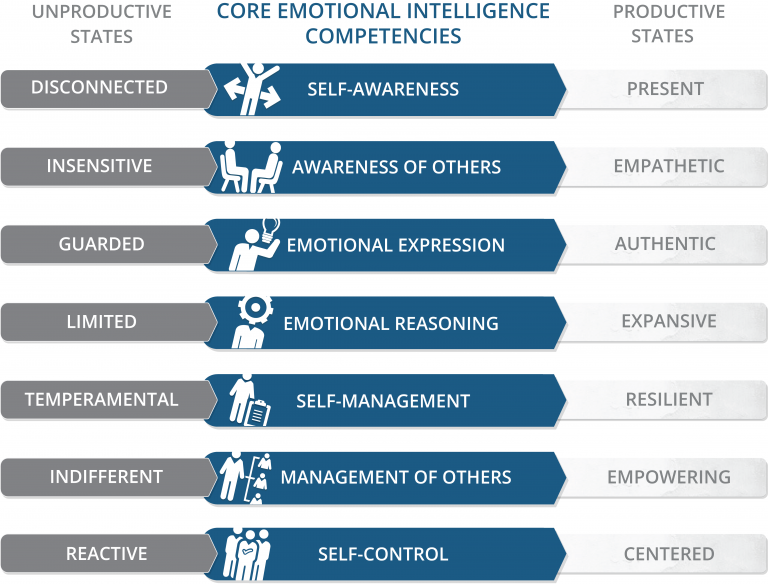Hiring for Emotional Intelligence
Improve your recruitment.
Realize your capability.
As an organizational coach I see it regularly - HR or L&D reaching out for assistance with a member of the team who is struggling to fit in or work with others. They are exceptional AT their job, but there is "something" holding them back. This “something” can be difficult to describe, but it usually comes down to the human factors at work, or put another way, their emotional intelligence (EI) - in comparison to others in the same environment. In fact the research indicates that this can be anything from 60% to 80% of the “something”.
As a business change consultant I also understand the value of integrating these factors into the ‘fabric’ of how organizations operate rather than adding them on as a band-aid to ‘fix’ a problem. When you front end the process you harness the benefits of being able to hire FOR these human factors (or EI) - whether that be for your project team or the organization at large.
““EI has twice the power of IQ to predict performance. EI is also a better predictor than employee skill, knowledge or expertise” ”
Delivering on organizational objectives in a fast changing digital / global market without the right talent is tough. Talent acquisition traditionally focused on pedigree or intellectual criteria, such as where a candidate attended school, what grades they achieved, certificates they hold or how ‘smart’ they are, but the modern workplace also needs agility; ‘soft’ (people) skills and the energy to inspire performance both in self and others. When you fail to hire for these human factors, meeting your objectives will always be tough.
Building teams with people who understand their emotions and the emotions of others is a win-win situation. Relationships grow, people become more resilient, and are able to handle stress more effectively. Far too many employees lack basic self-awareness and social skills and too often, aren’t aware of how their moods and emotions are impacting others in the workplace. Emotions influence, both productively and unproductively, our decisions, behaviour and performance.
Emotional Intelligence: a set of skills that help us better perceive, understand and manage emotions in ourselves and in others.
Measuring how often a candidate demonstrates emotional intelligence in the workplace will allow hiring managers to utilize EI measures as an additional means to avoiding bad hires.
Revo recommend adopting a holistic approach to Talent Management using the following framework:
Use an EI psychometric assessment at the Selection Stage to help identify candidates with a high EI
Include competency based interviewing techniques or complete behaviour based simulations during your Selection Stage
On-board new candidates with an EI self-assessment to introduce them to expected behaviours
Follow up as part of ongoing Talent Management and Performance Development by using a GENOS 180 or 360 degree EI assessment
PS. Please don’t use a personality tests as a substitute for EI. These measure personality traits, NOT the specific EI competencies such as self-awareness, authenticity, emotional reasoning, self management, or inspiring performance. They should be used in conjunction with each other.
The Genos Selection Model, which Revo are accredited to administer and debrief, comprises 7 emotionally intelligence competencies. These competencies represent skills and behaviours, based on underlying abilities and experiences that are measurable and observable. The Genos model captures the workplace skills and behaviours that manifest from emotional intelligence abilities.
Genos Selection Model
The right side of the model represents productive states typically attained by candidates who demonstrate the corresponding behaviours frequently, whereas the left side shows unproductive states observed by those who demonstrate the corresponding behaviours less frequently.
Genos Selection Model
The right side of the model represents productive states typically attained by candidates who demonstrate the corresponding behaviours frequently, whereas the left side shows unproductive states observed by those who demonstrate the corresponding behaviours less frequently.
Genos Selection Reports describe each competence along with the type of outcomes to expect from strengths in each area.
Each Genos Selection Report is designed for use by Hiring Managers and provides scores on each of the 7 competencies in the model as well as 6 competency based interview questions per competency that focused your interview on:
Mindset and knowledge of the subject
What the person has done or put into practice
What outcomes the person has generated
Published psychometric studies have shown that scores on the Genos Selection Assessment meaningfully correlate with a number of important workplace variables. The higher people score on the Genos assessment, the higher they tend to also score on measures of:
Workplace performance
Leadership effectiveness
Sales and customer service
Resilience
Team work effectiveness
Employee Engagement
EI skills and behaviours are as important as your intellect, experience and background in determining success at work and in life.
Measuring emotional intelligence should therefore be added to talent management and hiring processes, not to replace other strategies but to strengthen existing processes.
Using the Genos Emotional Intelligence Selection Assessment you will have the best chance of measuring how often a candidate demonstrates these essential human factors in your workplace and hiring FOR emotional intelligence.
Request a Genos Selection Report for your organization
Watch previously recorded ‘Lunch & Learn’ Webinars focused on ‘Hiring for Emotional Intelligence’
A Genos trainer is required to run any of the the Genos suite of EI Assessments and training courses. Alison Coates is a certified Genos Practitioner and via Revo provides online administration of Genos EI assessments as well as coaching and training to embed the learning opportunities that are realized as a results of these assessments.
This article was written in collaboration with Genos International Europe. Alison Coates is a certified Genos EI Practitioner.





